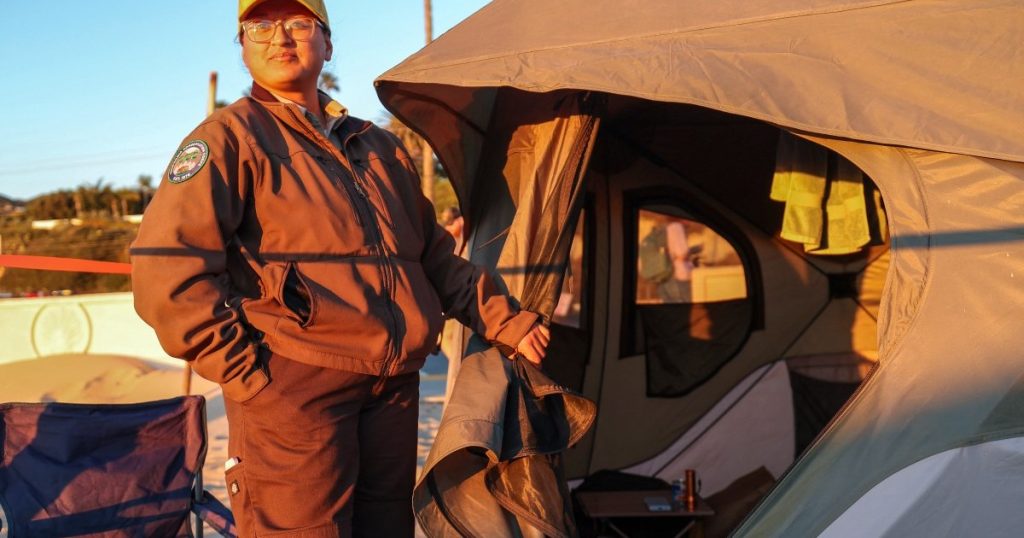A huge village has sprung up on the golden sands of Malibu, home to thousands of firefighters.
Firefighters from across North America eat, sleep and relax on Zuma Beach when they’re not battling the Los Angeles wildfires.
Around 5,000 first responders are milling about between the caravans and tents. The camp comes to life before dawn as thousands line up for breakfast.
The standards of dozens of fire battalions mark the presence of crews from throughout California and the western United States, as well as a contingent of newly arrived Mexicans.
For many, breakfast is the most important meal of the day, an opportunity to fill up on calories before a shift.
The food will be prepared by a team of inmates from California prisons deployed to assist in one of the largest disaster operations the state has ever seen.
Correctional officer Terry Cook, who oversees inmates at the base, said he occasionally sees a familiar face among the regular firefighters, someone who has gotten back on the straight and narrow after serving his sentence.
“I met prisoners who were in my camp two years ago and I see them here in line and I shake their hand and say ‘congratulations,'” he said.
Two large fires in Los Angeles have scorched 40,000 acres (16,000 hectares) since they broke out amid high winds last Tuesday.
At least 24 people died in the fires, which destroyed more than 12,000 buildings and forced 92,000 people from their homes, including in the wealthy Pacific Palisades, just a few miles from the firefighters’ camp.
After breakfast, teams prepare their vehicles and arm themselves with snacks, sandwiches, drinks and sweets.
With the threat of damaging winds across much of the region, some units are tasked with responding to new outbreaks while others are tasked with containing the original fire.
With orders in hand, each team sets off, fanning out across the roads to Pacific Palisades or up into the untamed wilderness of Topanga Canyon.
For some, it is their first time on site as part of this firefighting effort; For others, it’s another day in an already long week.
As he prepares to climb into Mandeville Canyon, Jake Dean says that in his 26 years as a firefighter, he has never seen a fire as destructive as this one.
“After the first day, many people I had known for a long time at base camp hardly recognized me,” he said. “My phone didn’t recognize me and turn it on, I was so tired and dirty.”
But with huge air operations exacerbating the fire on all fronts, Dean feels the work is paying off.
“It won’t be so bad today,” he said. “We will keep our pace, drink lots of water and prepare for the long work here and the next fire.”


